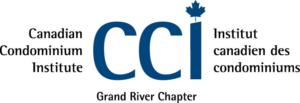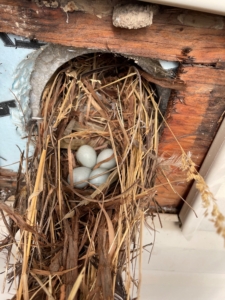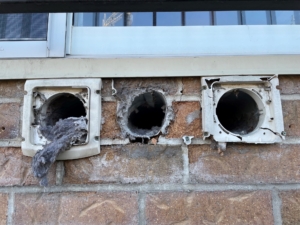Condo Chameleons- What does a Property Manager even do?
“What do you do for a living?” – the hardest question ever asked to a condominium manager.

When I first started to write this, I thought about what it is to be a condominium manager, and how hard the job is to explain to people at dinner parties. Remember dinner parties?
Most little boys and girls don’t answer “property manager” when asked what they hope to be when they grow up; it seems to be a profession that just finds us, often as a second or third career. Condominiums are unique communities (sometimes a bit too unique) that require managers to wear many hats, and none are a one-size-fits-all. A good manager is a chameleon, if that chameleon also happens to be extremely patient, an efficient communicator and great at multi-tasking.

What is the hardest part of all that?
On the surface, the dabbling into law, building maintenance, employees, finance, HR, all the while being on-call for your buildings is a little snapshot. Getting a 2 a.m. call that there is a major flood, a fire, or visitors parking is full (everyone defines emergency differently) is never a fun experience so we are grateful when the stars align, and the phone is quiet. Having to be on the receiving end of extremely difficult phone-calls and meetings is likely one of the hardest parts of the business. No one likes to be berated for doing their job, and luckily most people are polite, but expectations are sometimes out of whack, even from the condominium Board. There are the residents that blame us for increasing condo fees (even though buildings do in fact need funds to function) and enforcing rules (we would like to spend our time doing things other than reminding residents that Christmas in June is not a thing, so those lights should come down).
So, you sit at a desk all day?

Every day something unexpected pops up, and we often are heard saying “that is a new one”. You have never “heard everything” in property management; situations will make you scratch your head, ponder if drinking on the job is acceptable and praying you do not accidently hit “send” on that draft email. On the positive side, every day brings a new learning experience, and nothing is ever dull. You must be familiar with your site(s) and even that role varies; some property managers have an office in their one building whereas others look after more smaller properties. To answer your imaginary question, we do not sit at our desk all day, even though that would be easy to do as we get more mail than Santa Claus.
You mentioned a Board…

The Board of Directors, whom we take direction from and report to, are a bag of mixed candies; some are sweet, some are sour, and some explode upon contact (pop-rocks style). They come from all walks of life, educations, and backgrounds, from students to former CEOs of multi-million-dollar companies. Sometimes it is just a husband and wife, and if they cannot find a babysitter, their child may come along as an observer. These Directors can change at any time, and so you must quickly adjust to the new random mix of personalities that get thrown at you at the drop of a hat. Some Boards are very casual and would make a sailor blush with their language. Other are very formal, and you feel the need to change into your good shirt or tie during the Zoom call and review Roberts Rules of Order before the meeting. Loyalty and trust-building can be difficult since a newly elected Board may wish to clean house and get a new management company, despite years of a strong working relationship. I personally like the adage “managers manage, directors direct” and when there is a stream-lined process in place, a condo should run like a well-oiled machine (that is, until there are not enough funds in the reserve account to operate said machine).
So, you are like a real estate agent that does superintendent work?

Are you even listening? Where was I…the Board are the folks that hire us property managers, and as I mentioned, these people range in not just their working backgrounds, but in the type of Director they are. Some must have been military sergeants in their past lives while others are silent ghosts who disappear if you look at them too closely. Luckily for the most part, directors are there to ensure that their investment, as well as all the other owners, is being well looked after. Clear communication goes a long way in working hand and hand with the Board, and it is extremely satisfying when that major project gets completed, or you come to the end of dealing with a difficult situation together.
I still don’t get it.

That is okay. A lot of condo home-owners do not really understand either. We are often seen as the “bad guys” who tell them their adorable family dog is not permitted, that their cigar habit is a nuisance to neighbours, or their four vehicles have nowhere to go. You can just imagine how well it goes being the provider of such good news and deflating the excited energy of someone who just purchased a new property. The CAO and ACMO provide so much helpful information on their websites, and we can only hope that those in the market for condos (which grows daily) educate themselves before purchase.
So you enjoy it?

Despite kindergarteners not putting “condominium manager” up there on their career wish list along with astronauts, hockey players and rock-stars, it is an extremely important job that deserves more attention. There have been many articles written about the manager shortage crisis in Ontario, and hopefully more people are attracted to the profession that never gets boring. There are always interesting people to meet and connect with, and new and exciting things to learn. It also feels great to get so much accomplished for people’s homes, so go thank your property manager today!

Sara Hicks, B.A.,(H.), OLCM, RCM, LCCI
Vice President, Owner, MF Property Management
www.mfproperty.ca







































